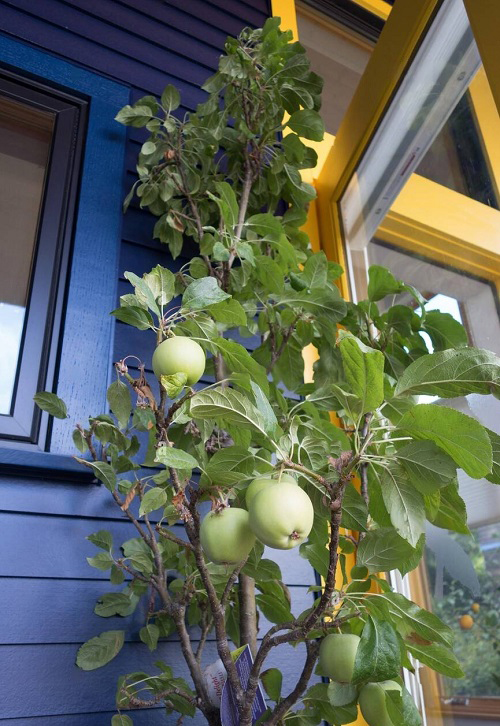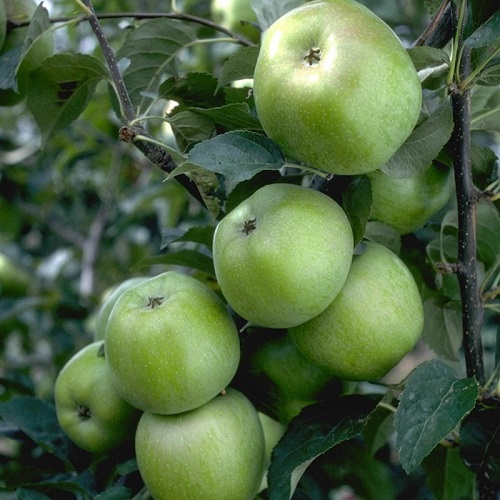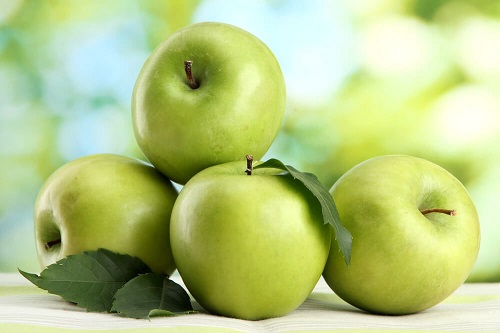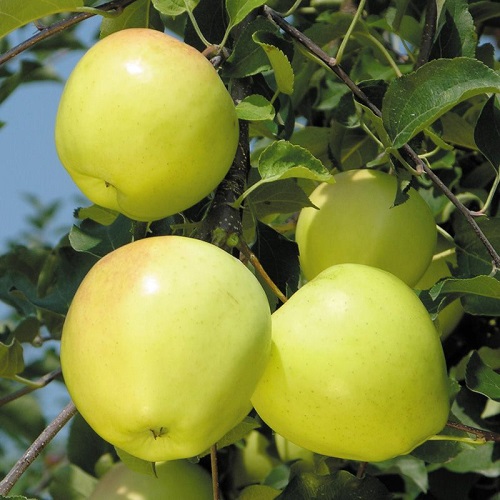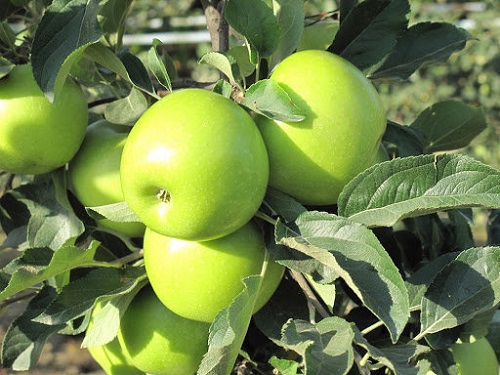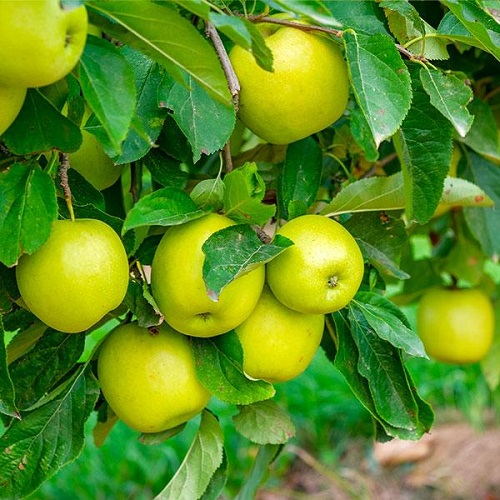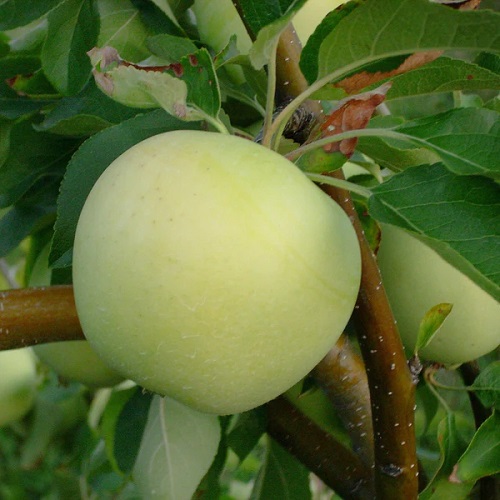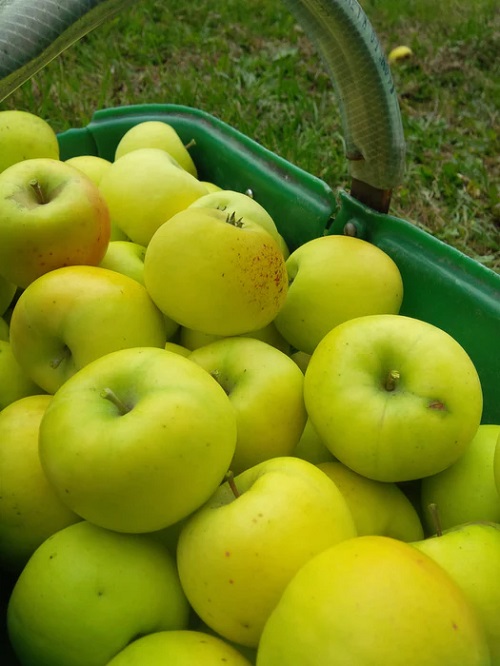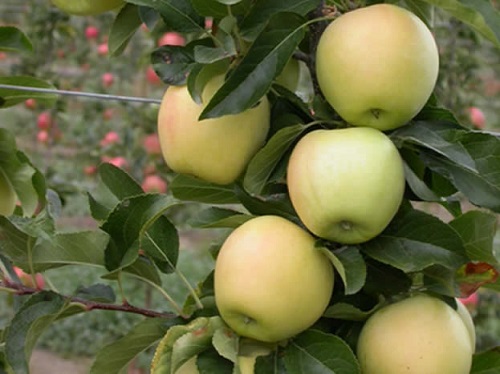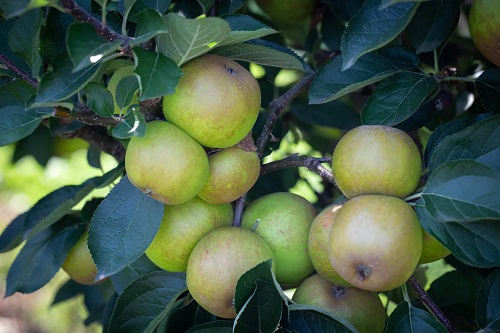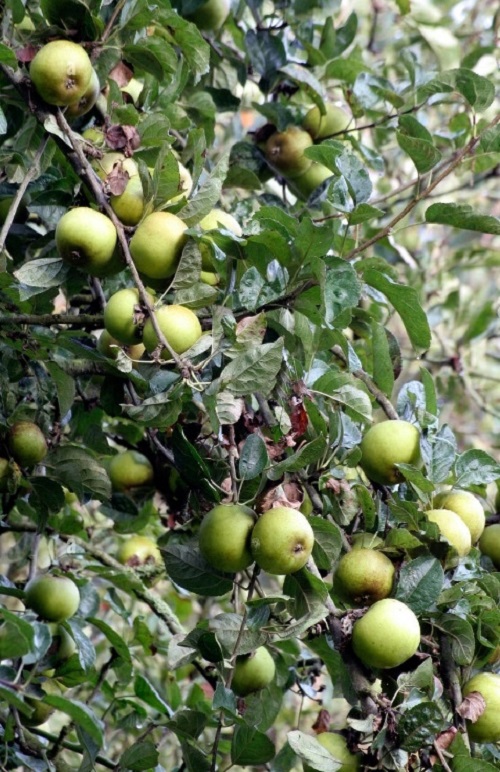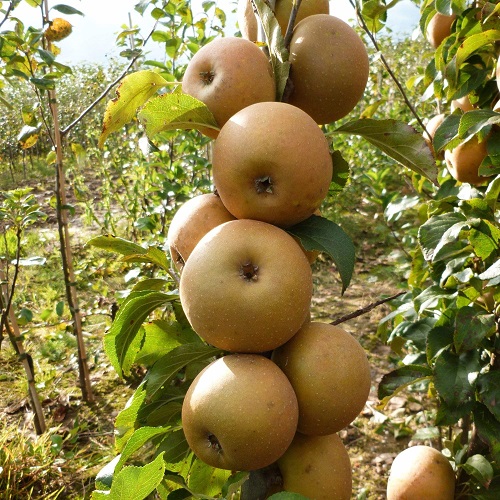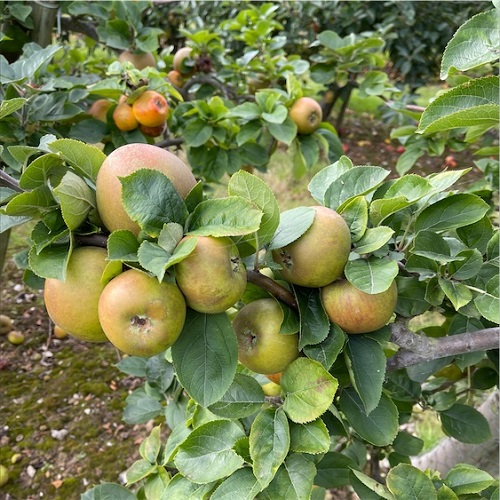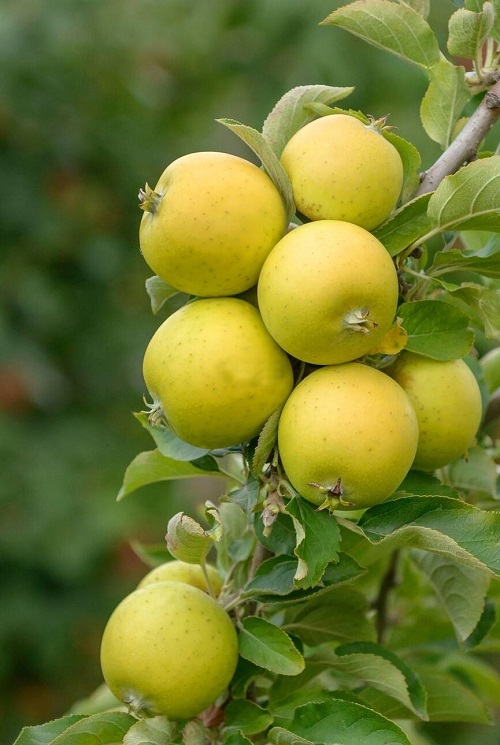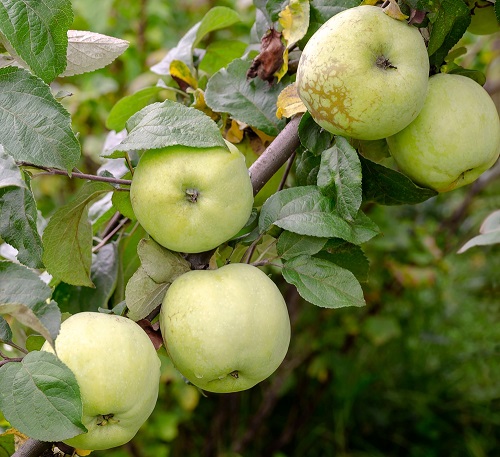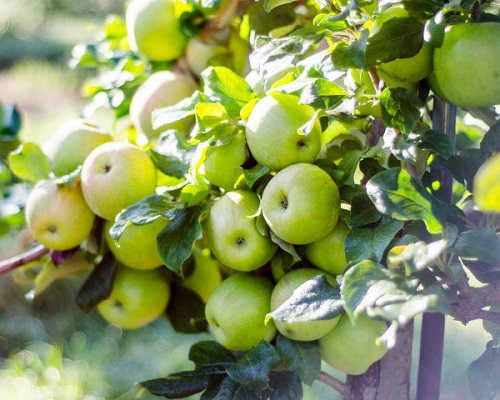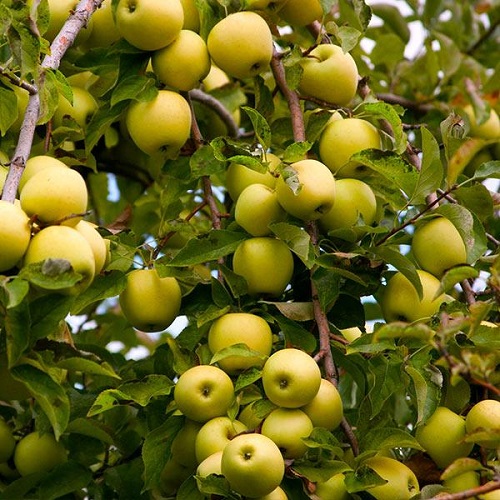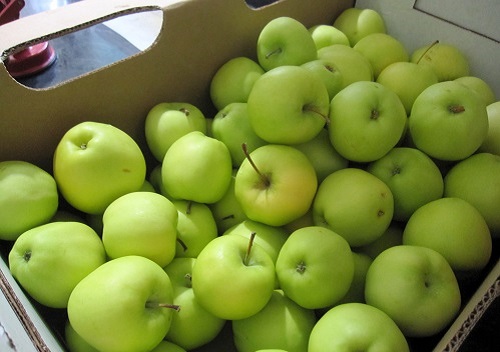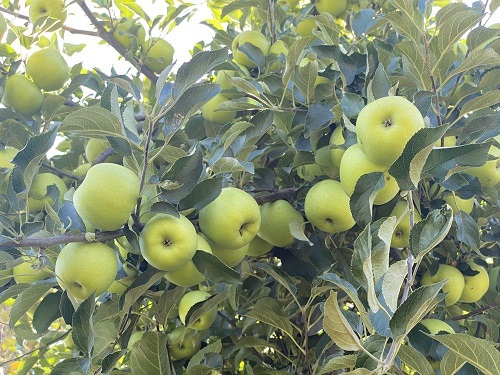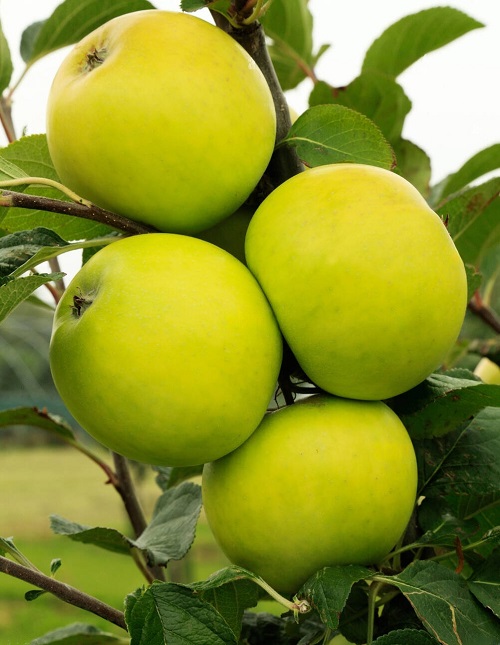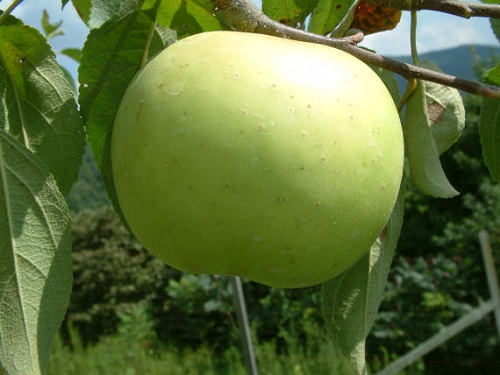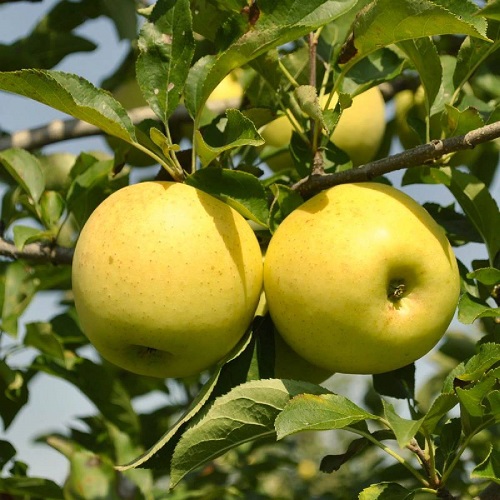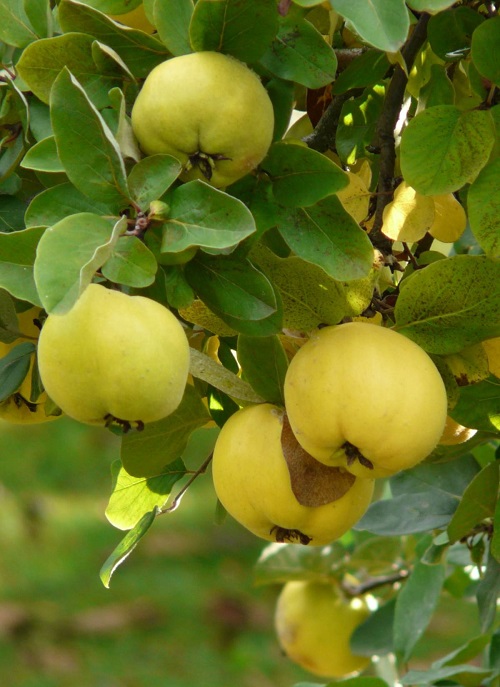Whether you prefer a tart and tangy or something on the sweeter side, these Best Green Apple Varieties make the most of them.
Hey there, our fellow Apple lovers! Let’s take a bite out of the best Best Green Apple Varieties out there! You know what they say, an apple a day keeps the doctor away! So, let’s get right into it and discover the most delicious and refreshing green apples on the market.
Here are Sweet Apple Varieties
Best Green Apple Varieties
1. Granny Smith Apples
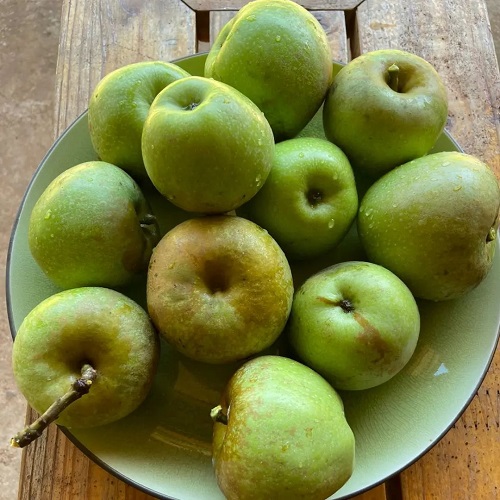
USDA Zones: 5-9
The Granny Smith apple is perhaps the most well-known green apple variety. The skin is truly green, while the flesh inside is a light shade of green and white.
Find what is a Hedge Apple here
2. Cripps Pink Apple
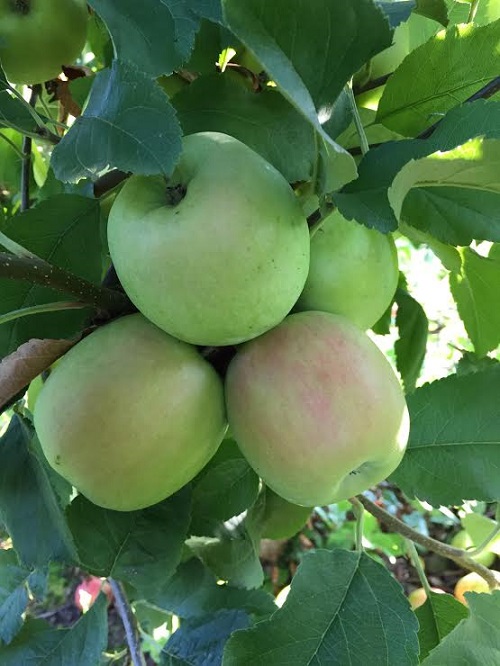
USDA Zones: 5-9
Cripps Pink, also known as Pink Lady, is a green apple variety that has a unique flavor profile. Its texture is firm that holds up well in pies or other baked goods.
3. Lyman’s Large Summer Apple
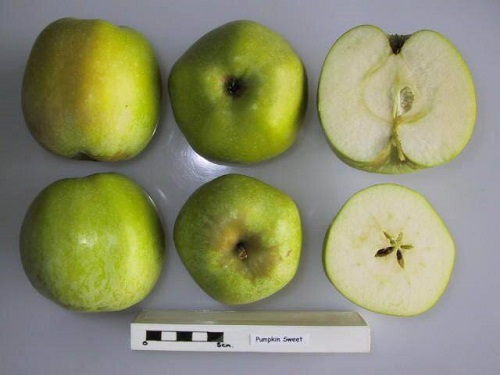
USDA Zones: 4-9
Lyman’s Large Summer Apple is a medium to large-sized apple with a distinctive bright green color that becomes slightly yellow when fully ripe.
Learn Using Apple Cider Vinegar for Pests here
4. Braeburn Apples
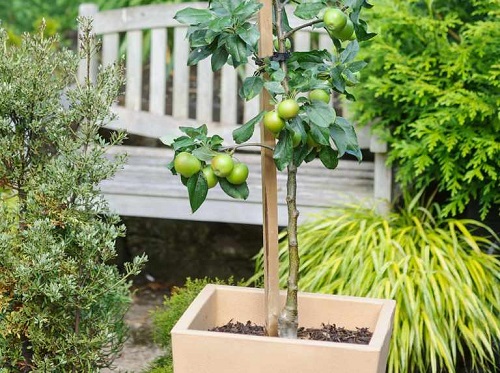
USDA Zones: 5-8
Braeburn apples are another popular green apple variety. They are a bit larger than other green apples, with bright green skin that often has red blushes or stripes.
5. Gravenstein Apple
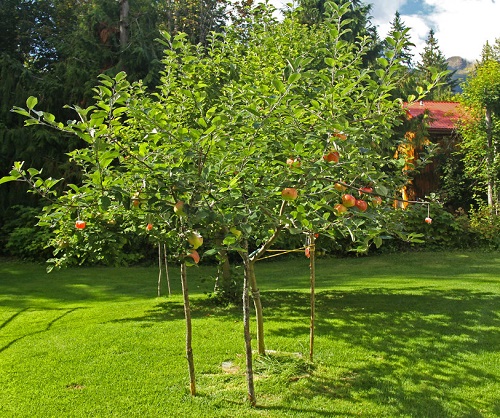
USDA Zones: 2-9
Gravenstein apples are a lesser-known green apple variety that has a tart and tangy flavor. Some apples might have a mix of green and red colors on the skin.
6. Newtown Pippin Apple
USDA Zones: 4-10
The Newtown Pippin stands out as one of the best green apple varieties. It is a medium-sized apple with greenish-yellow skin that is often flushed with red.
Learn How to Grow Apple Tree in a Container and Care here
7. Rhode Island Greening Apple
USDA Zones: 5-7
The Rhode Island Greening apples have been popular for over 200 years! They are large and round, with a greenish-yellow skin that turns yellow when fully ripe.
8. Pound Sweet Apple
USDA Zones: 5-8
Pound Sweet apples are gaining popularity in recent years due to their unique flavor profile and versatility in the kitchen. They are medium-sized apples with greenish-yellow skin.
9. Shamrock Apple
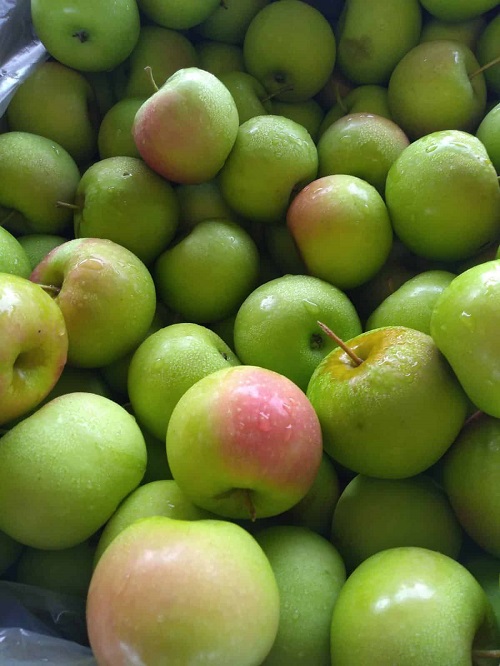
USDA Zones: 3-11
Shamrock is a good choice to enjoy a crisp and juicy tart. These apples have a red blush on their skin and a creamy, light green flash.
Learn How to Grow Sugar Apples here
10. Smeralda Apple
USDA Zones: 4-8
The Smeralda apple was first introduced in Italy in the 1970s. It is a hybrid of the Golden Delicious and Granny Smith apple varieties, which gives it a unique flavor profile.
11. Crispin Apple
USDA Zones: 4-8
The Crispin apple is a hybrid variety of the Golden Delicious and the Indo apple varieties. It is also named Mutsu apple. One of the key features of the Crispin apple is its texture.
12. Lodi Apple
USDA Zones: 3-8
Lodi apples were named after the town of Lodi, which is located near the Finger Lakes region of New York. The apple was developed as an early-season variety.
Learn How to Grow Crab Apples here
13. Tolman Sweet Apple
USDA Zones: 4-8
Tolman Sweet Apples were named after their creator, Ephraim Wales Tolman. It is medium-sized, with pale green skin having a light red blush.
14. Aurora Apple
USDA Zones: 4-8
Aurora apples are medium-sized with distinctively bright green skin. The flesh is crisp, juicy, and slightly tart with a sweet finish.
15. Ashmead’s Kernel Apple
USDA Zone: 4-9
If you’re a fan of green apples, you might want to try Ashmead’s Kernel. This heirloom variety has a unique taste and texture that sets it apart from other green apples.
Can Cats Eat Apples? Learn here
16. Duke Of Devonshire Apple
USDA Zones: 4b – 7
The Duke of Devonshire apple was first discovered in the 19th century in England. This apple is a cross between the D’Arcy Spice and Wyken Pippin apple varieties.
17. Egremont Russet Apple
USDA Zones: 4-8
When it comes to green apple varieties, the Egremont Russet is one of the best. It is a small to medium-sized apple with distinctive, rough skin.
18. Zabergau Reinette Apple
USDA Zones: 3-9
The Zabergau Reinette apple is easy to grow and offers juicy flesh. it tastes best when raw and also has a long shelf life.
Learn the Best Crab Apple Pruning Tips here
19. Ananas Reinette Apple
USDA Zones: 3-9
Ananas Reinette apple has its origins in France. It is a cross between the Reinette Franche and Ananas varieties, which gives it its distinct flavor.
20. Antonovka Green Apple
USDA Zones: 3-8
Antonovka Green Apple was first cultivated by a man named Andrei Timofeevich Antonov. The apple has pale green skin that is thin and easy to bite into.
21. Shizuka Apple
USDA Zones: 4-9
The Shizuka apple is a cross between the Golden Delicious and Indo apple varieties. They are medium-sized with a round shape and smooth, pale green skin.
Check out our article on growing apples here
22. Golden Delicious Apple
USDA Zones: 4-8
This apple has sweet, tender flesh and a juicy texture. It tastes best when raw and offers a mouth-watering experience with every bite!
23. Ginger Gold Apple
USDA Zones: 4-8
Ginger Gold Apple is believed to be a cross between the Golden Delicious and Albemarle Pippin apple varieties. One of the unique features of the Ginger Gold apple is its color.
24. Grimes Golden Apple
USDA Zones: 5-8
The Grimes Golden Apple is a green apple variety that is highly prized for its crispness, juiciness, and sweet-tart flavor.
Learn How to Grow Honeycrisp Apple Tree here
25. Golden Noble Apple
USDA Zones: 3-9
Also popular as Yellow Newtown Pippin, it has a slightly oblong shape, with a round bottom and a pointy top.
26. Green Pippin Apple
USDA Zones: 4-10
If you’re looking for some versatile apple variety with unique and crisp flavors, then you should definitely consider Green Pippin apples.
27. Grenadier Apple
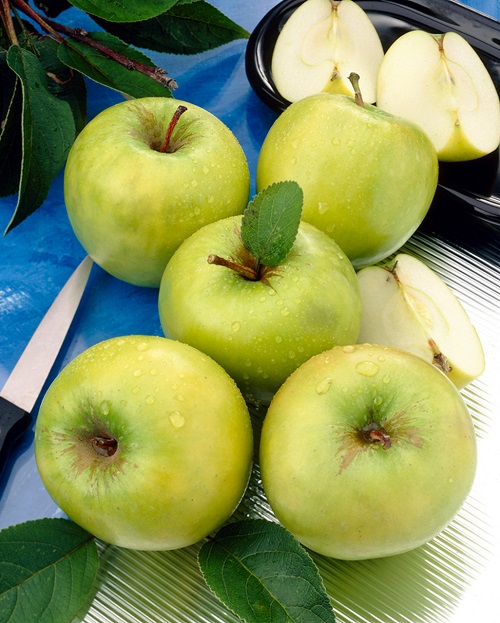
USDA Zones: 4-9
Legend has it that the Grenadier apple was named after the elite soldiers of the French army, known as the Grenadiers, who ate the apple during the Napoleonic Wars!
28. Honeygold Apple
USDA Zones: 3-9
Honeygold apples are a hybrid of two popular apple varieties, Golden Delicious and Haralson. They offer juicy and sweet flavors.
Here are the best Crab Apple Tree Planting Instructions
29. Manks Codlin Apple
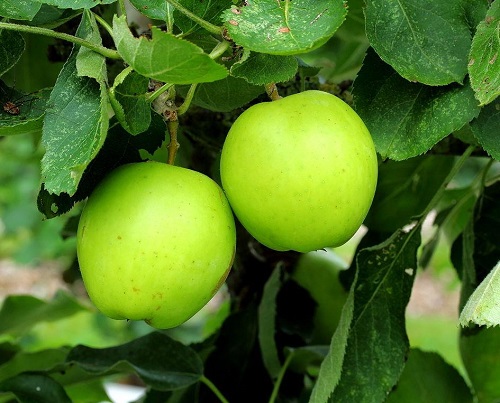
USDA Zones: 3-9
It is believed to have originated on the Isle of Man, a small island located in the Irish Sea. Its delicious taste, firm texture, and versatile uses make it quite popular!
30. Cole’s Quince Apple
USDA Zones: 4-8
Cole’s Quince Apple is popularly known as the Seneca Spice Apple. The pros of this variety are that it offers a unique flavor and crunchy texture that will blow your mind.
31. Calville Blanc d’Hiver Apple
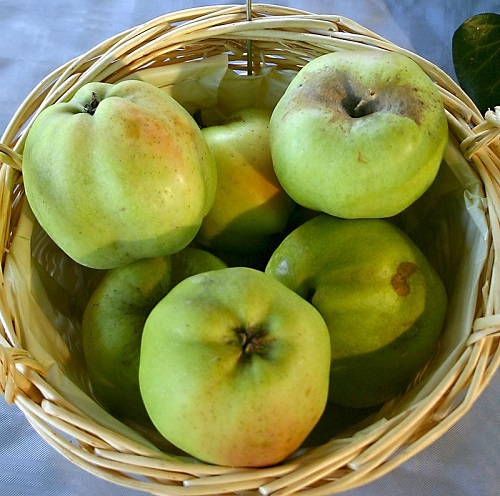
USDA Zones: 5-9
It offers a versatile, crunchy, and tart flavor. These apples are sensitive to temperature changes and require a lot of attention and care.
Check out Fast Growing Vines for Covering a Fence or Wall here
Quick Green Apple Growing Tips
Growing your own green apples can be a rewarding experience, but it does require some knowledge and effort. Here are some tips to help you grow green apples successfully:
1. Choose a Location with Adequate Sunlight
Green apples need at least 6-8 hours of direct sunlight per day to produce a good crop. If your garden doesn’t receive enough sunlight, consider planting your green apple trees in a spot that gets more direct sun.
2. Use Well Draining Soil
These apples require soil that drains well to prevent root rot and other diseases. If your soil is too moist or compacted, consider adding organic matter such as compost or peat moss to improve drainage.
3. Prune Regularly
Pruning your green apple plants is essential for keeping them healthy and producing a good crop of fruit. Prune off any dead or diseased branches, and thin out the branches to allow more light and air to reach the inner parts of the tree.
4. Fertilize
Green apples need to be fertilized regularly to ensure they get the nutrients they need to produce a healthy crop. Use a balanced fertilizer that is specifically formulated for fruit trees. Do refer to the label for dosage and instructions.
5. Protect from Pests and Diseases
These plants are susceptible to a variety of pests and diseases, so it’s important to monitor your trees regularly and take steps to prevent infestations and infections. Use a pesticide or fungicide if necessary.
6. Harvest on Time
Green apples are usually ready to harvest in late summer or early fall. Check the apples regularly to ensure they are ripe before harvesting.

